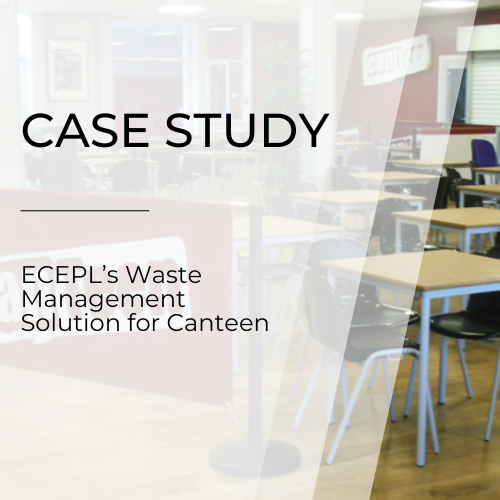
Case Study: Kwik Composter KC-30: Solution for Canteen Waste.
Client: Suzlon Generators Limited,Pune
Background
Suzlon Generator Private Limited is an electrical/electronic manufacturing company based out of C/O Thorat Medical Kohinoor Centre, Chakan District, Pune, Maharashtra, India.
Concern:
Composting organic waste instead of sending it to landfills can cut over 50% of carbon dioxide-equivalent greenhouse gas emissions.
By diverting food waste from landfills, we prevent the release of methane, a potent greenhouse gas.
Composting not only reduces methane emissions, a greenhouse gas, but also enhances soil health by providing essential nutrients to plants and acting as a carbon sink.
Implementing composting systems is cost-effective and feasible for corporate company canteens.
This is precisely where Earth Care Equipments Pvt Ltd. steps in.
Objective: Implement an organic waste converter (OWC) to compost 30 kg of food waste daily, reducing landfill dependency and promoting sustainability.
The designated unit at the moment will mainly compost leftovers from a canteens that operate in the corporate office canteens and currently produce a lot of smell.
Solution: Organic Waste Converter
Implementation
Phase 1: Assessment and Planning
- Detailed Discussions: Conducted extensive discussions with the Earth Care team regarding:
- The type of food waste generated in the canteen.
- Availability of supplies needed to operate the machine.
- Suitable location for the placement of the machine.
- The path for transporting food waste from the restaurants to the machine.
- The number of operators required and their safety.
- Required manuals and documentation.
- Site Selection and Regulatory compliance: Finalized an accessible and convenient location for the OWC.
The product was delivered according to specifications and quality standards, with after-sales services provided. It was properly packaged, protected, and provided with operation and maintenance manuals. Export permits and compliance with regulations will be ensured, along with shipping and documentation details.
Phase 2: Installation and Training
- Manufacturing and Logistics:
Earth Care manufactured the machine Kwik composter –KC-30
Phase 3: Operation and Monitoring
- SOP (Standard Operating Process):
- . Step 1: Segregate plastics and other non-biodegradables from the waste.
- Step 2: Add 20% to 25% sawdust to the organic waste, depending on moisture content of waste.
- Step 3: Add 0.1% (of feeding capacity) composting culture to the composter.
- Step 4: Close the inlet door.
- Step 5: Ensure the outlet is not blocked.
- Step 6: Confirm, Composter is in AUTO MODE.
- Step 7: Put a bin /collector at the outlet. Compost is automatically collected in the bin/collector.
- Regular Monitoring Hand over the machine for operation to the Suzlon Generator Private Limited team.
Results
Quantitative Outcomes:
- Waste Reduction: diverted 30 kg of food waste daily from landfills.
- Compost Production: Generated 6 kg of compost daily.
- Cost Savings: Reduced waste disposal costs
Qualitative Outcomes:
Environmental Impact: Reduced greenhouse gas emissions.
Odor Management: Output:Very pleasant, sweet-smelling compost.
Conclusion
The OWC successfully managed 30 kg of food waste daily, reducing the community’s environmental footprint and fostering responsibility.




